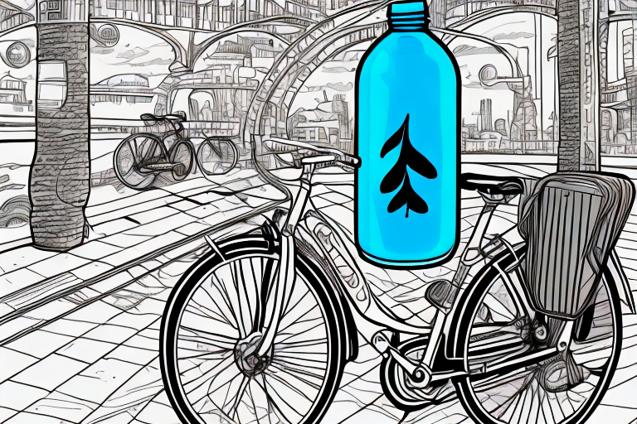
As sailors, it's our responsibility to minimize our environmental impact while traveling. Discover practical ways to travel sustainably and responsibly in our latest blog post.
How to Minimize Your Environmental Impact While Traveling
As sailors who have chosen to leave the rat race behind and explore the world with our families, we have a unique opportunity to experience the beauty and diversity of our planet. However, with this privilege comes a responsibility to minimize our environmental impact and ensure that we are traveling in a sustainable and responsible manner.
In this article, we will discuss various ways in which we can minimize our environmental impact while traveling, focusing on responsible tourism practices, waste management, and energy conservation. By following these guidelines, we can ensure that our sailing adventures are not only fulfilling and enjoyable but also environmentally friendly.
Responsible Tourism
Responsible tourism is all about making better choices for the environment, local communities, and the places we visit. It involves considering the social, economic, and environmental impacts of our travel decisions and taking steps to minimize any negative effects. Here are some tips for practicing responsible tourism while sailing:
1. Choose eco-friendly destinations and marinas
When planning your sailing route, consider visiting destinations that are known for their commitment to environmental conservation and sustainable tourism practices. Look for marinas that have been awarded eco-labels or certifications, such as the Blue Flag or Clean Marina programs. These marinas have demonstrated their commitment to environmental best practices, including waste management, water conservation, and habitat protection.
2. Support local economies
One of the best ways to practice responsible tourism is to support the local economy of the places you visit. This can be done by purchasing goods and services from local businesses, such as restaurants, shops, and tour operators. By doing so, you are not only contributing to the local economy but also helping to preserve local culture and traditions.
3. Respect local customs and traditions
As travelers, it is important to be respectful of the local customs and traditions of the places we visit. This includes dressing appropriately, learning a few words of the local language, and following any cultural guidelines or etiquette. By showing respect for local customs, we can foster positive relationships with the communities we visit and promote cultural understanding.
4. Participate in conservation efforts
Many destinations offer opportunities for travelers to participate in local conservation efforts, such as beach cleanups, wildlife monitoring, or habitat restoration projects. By volunteering your time and skills, you can help protect the environment and support local conservation initiatives.
Waste Management
Waste management is a critical aspect of minimizing our environmental impact while sailing. Proper disposal of waste, recycling, and reducing single-use plastics are all essential practices to ensure that our oceans and the destinations we visit remain clean and healthy.
1. Dispose of waste properly
When disposing of waste, it is important to follow the local regulations and guidelines for each destination you visit. This may include separating recyclables from non-recyclables, using designated waste disposal facilities, and adhering to any restrictions on disposing of waste at sea. Remember that littering, dumping waste overboard, or disposing of waste in unauthorized locations can have serious consequences for the environment and local communities.
2. Reduce single-use plastics
Single-use plastics, such as plastic bags, bottles, and straws, are a major source of pollution in our oceans and can have devastating impacts on marine life. As sailors, we can do our part to reduce single-use plastics by:
- Using reusable water bottles and containers
- Bringing reusable shopping bags when visiting local markets
- Avoiding plastic straws and cutlery
- Purchasing products with minimal plastic packaging
3. Recycle whenever possible
Recycling is an important way to reduce waste and conserve resources. When visiting marinas and destinations, look for recycling facilities and make an effort to separate your recyclable waste. If recycling facilities are not available, consider storing your recyclables onboard until you reach a location where they can be properly disposed of.
Energy Conservation
Energy conservation is another important aspect of minimizing our environmental impact while sailing. By reducing our energy consumption and using renewable energy sources, we can decrease our reliance on fossil fuels and reduce our carbon footprint.
1. Use energy-efficient appliances and equipment
When outfitting your boat, choose energy-efficient appliances and equipment, such as LED lighting, low-flow faucets, and energy-efficient refrigeration systems. These products not only consume less energy but can also help you save on fuel costs and reduce your overall environmental impact.
2. Monitor and conserve energy usage
Regularly monitoring your energy usage can help you identify areas where you can conserve energy and reduce your consumption. This may include turning off lights and appliances when not in use, using natural ventilation instead of air conditioning, and being mindful of your water usage.
3. Utilize renewable energy sources
Installing renewable energy systems, such as solar panels or wind generators, can help you reduce your reliance on fossil fuels and decrease your carbon footprint. These systems can provide a clean and sustainable source of energy for your boat, allowing you to power your appliances and equipment without harming the environment.
Conclusion
By practicing responsible tourism, managing our waste, and conserving energy, we can minimize our environmental impact while traveling and ensure that our sailing adventures are both enjoyable and sustainable. As sailors, we have a unique opportunity to experience the beauty of our planet and a responsibility to protect it for future generations. By following these guidelines, we can continue to explore the world with our families while preserving the environment and supporting the communities we visit.